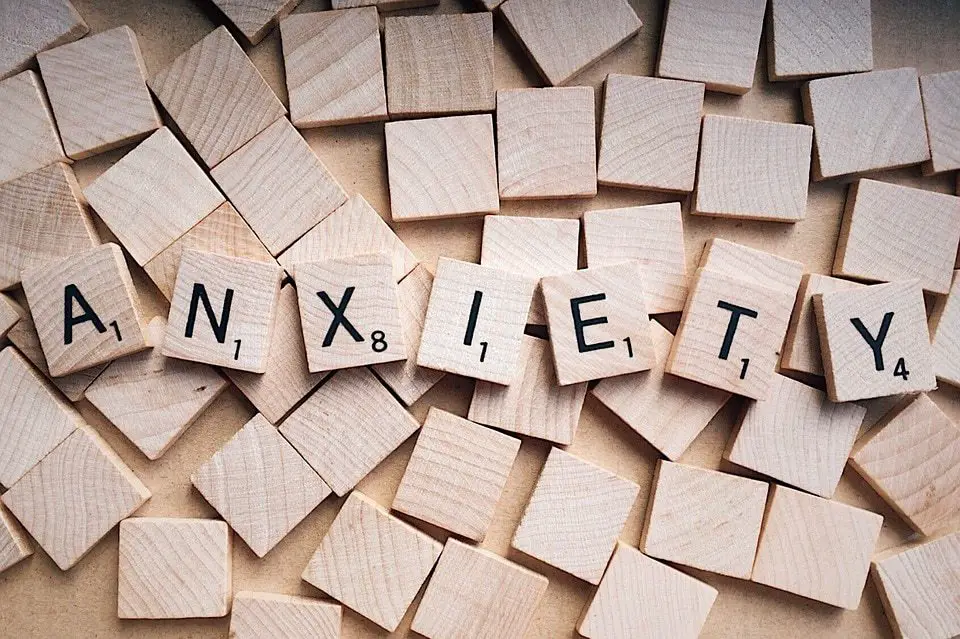
Anxiety and Keto
Ok, big topic here. It’s going to get pretty personal, which I generally try to avoid. If you don’t like personal or are just here for recipes, head on back to the home page here. An article about anxiety and Keto has been on my ‘to do’ list for a long time now but it felt so overwhelming. Why?
Because of my anxiety.
Because it’s SO personal, and I generally keep my personal struggles very personal. I have been learning though, that the more I share, the more people share with me and we help each other heal.
My anxiety manifests mostly as imposter syndrome, self doubt and a bit of OCD thrown in too. This translates to my brain saying things like…
Who are you to tell people how to eat?
You ate chocolate yesterday, you’re a fraud
Your recipes aren’t even any good, everyone is just being nice.
Just stick with your day job.
You’re no good at this.
You’re no good at anything.
Not even your day job.
That compliment was fake.
They will find you out and you will lose everything.
My Experience with Anxiety and Keto
I didn’t realise I had anxiety until I didn’t have it anymore. It was just always there, this constant fast paced chatter in my head that would sometimes completely overwhelm me until I crashed. I thought it was just life. If you haven’t experienced anxiety (which is different from feeling anxious in an anxious situation), it can be quite hard to explain. I’m not going to try because it’s been done 10000 times over. If you want to understand how it feels to help support someone, here’s some great information from Beyond Blue.
One thing is for sure though, it can feel really lonely.
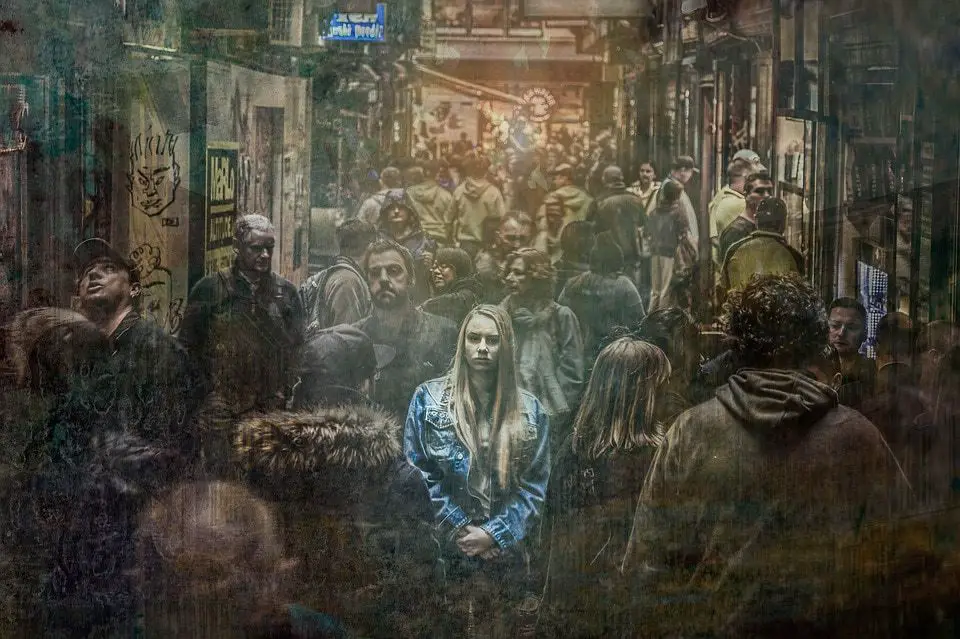
It’s taken me quite a few years, 4 to be exact, to realise the connection between what I consume and my anxiety levels.
When I talk about consumption, I mean it in a broad sense. For me, it means consuming:
- Food
- Alcohol
- Drugs (legal and otherwise)
- Social media
It’s been a rocky road, but I’ve now worked out my limits and found my own personal balance between anxiety and Keto. I learn more about the anxiety and diet connection every day though, and it continues to blow my mind how interconnected our bodies are.
Our bodies are all one amazing organism, like an ecosystem, where everything plays into everything else.
My own ‘finding balance’ involved drinking to a firm limit, because alcohol has been my escape from anxiety for a long time (too long).
If I found that sweet spot – just enough wine to quiet my anxious mind but not enough to cause an anxiety attack – I was in a happy place. Boy was that a dangerous line to walk the tight rope on.
Since pulling back on alcohol consumption, I’ve now realised how much what we eat fuels our emotions and thoughts. When I am in ketosis, I have a clarity of mind and focus that I just can’t attain otherwise. I have cut out coffee, because ketosis feels better than 5 lattes to get through the day.
It didn’t matter how much meditation or yoga I did or how many essential oils I used (still recommended!), if I was eating the wrong food it was all pointless. I would lay on my yoga mat and think a million miles an hour if I had a carb loaded lunch.

There’s more and more science and research linking anxiety and keto, and our gut health in general.
Anxiety and Keto – The Science
Ketogenic diets have proven to be invaluable tools in the treatment of stubborn neurological conditions, most notably epilepsy.
They have also shown promise in the management of other brain-based disorders such as Parkinson’s Disease, ALS, Traumatic Brain Injury, Multiple Sclerosis, and chronic headaches, as well as in metabolic disorders like obesity, cancer, and type 2 diabetes.
A recent review article “The Current Status of the Ketogenic Diet in Psychiatry” by researchers at the University of Tasmania in Australia [Bostock et al 2017 Front Psychiatry 20(8)] brings us up to date on all things ketogenic and mental health. [1]
A rat study found that adding ketone supplements to a standard high-carbohydrate diet reduced anxious behavior.
Whilst we aren’t rats, there’s a reason we test on them. I know from a personal perspective, when I am eating a low carb diet, I feel more calm and in control – exactly what someone with anxiety needs.
Anxiety can feel like there are a million scattered thoughts in your brain at any one time, and they are ALL emergencies. Having that calm down through eating keto was pure bliss.
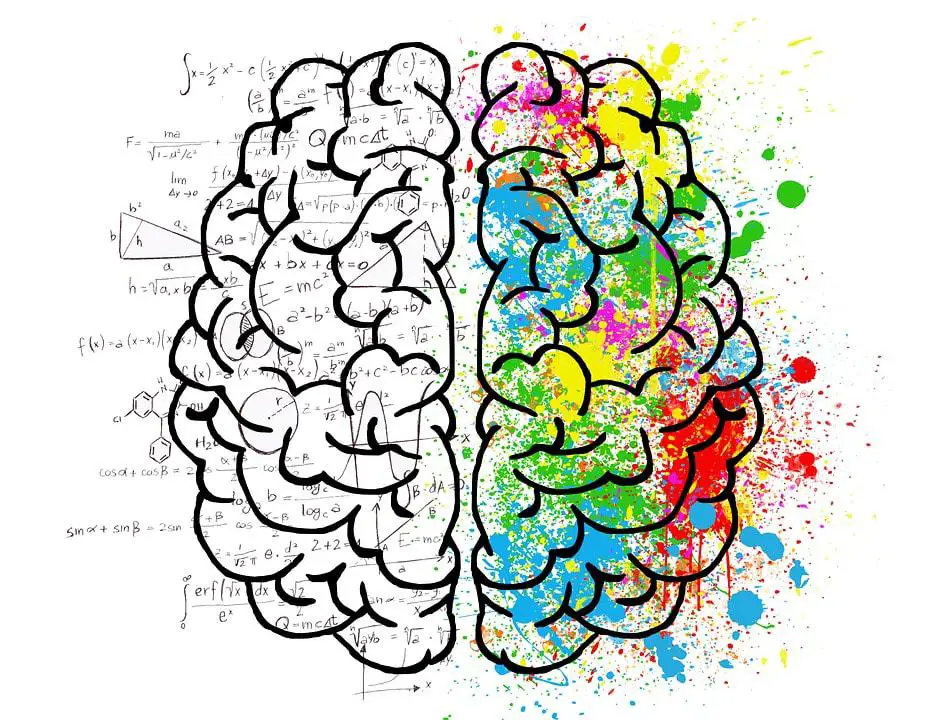
Ketogenic Diets and Depression
A rat study found that a ketogenic diet reduced depressive behaviours.
A mouse study found that feeding pregnant animals a ketogenic diet reduced offspring susceptibility to depressed (and anxious) behaviors. [1]
How Depression is Linked to Anxiety
Depression and anxiety disorders are different, but people with depression often experience symptoms similar to those of an anxiety disorder, such as nervousness, irritability, and problems sleeping and concentrating. But each disorder has its own causes and its own emotional and behavioral symptoms.
Many people who develop depression have a history of an anxiety disorder earlier in life. There is no evidence one disorder causes the other, but there is evidence that many people suffer from both disorders.
My personal experience was that I was running on anxiety for so long (possibly most of my life), that eventually, my body and emotions absolutely crashed into a depressive hole.
I could no longer muster the energy to do anything – even to cook. And that’s kind of my thing. Every day was a struggle, and even the things I have always loved no longer brought me joy.
Keto was my only saviour – when I finally got the basics back in my fridge (for me, a roast chicken, avocado and salad), I could eat strict keto for a few days and finally feel back on track.
Now, I can feel it coming on. I feel the energy disappear from my life and I know I’ve been pushing too hard. Often this is combined with a few days of bad food and too much alcohol – all which affect gut health.
Gut health and anxiety
Given how closely the gut and brain interact, it becomes easier to understand why we feel sick before giving a presentation, or feel physically ill during times of stress.
That doesn’t mean, however, that functional gastrointestinal conditions are imagined or “all in your head.”
Psychology combines with physical factors to cause pain and other bowel symptoms.
Psychosocial factors influence the actual physiology of the gut, as well as symptoms. In other words, stress (or depression or other psychological factors) can affect movement and contractions of the GI tract, make inflammation worse, or perhaps make you more susceptible to infection.
In addition, research suggests that some people with functional GI disorders perceive pain more acutely than other people do because their brains are more responsive to pain signals from the GI tract. Stress can make the existing pain seem even worse.
Based on these observations, you might expect that at least some patients with functional GI conditions might improve with therapy to reduce stress or treat anxiety or depression.
And sure enough, a review of 13 studies showed that patients who tried psychologically based approaches had greater improvement in their digestive symptoms compared with patients who received only conventional medical treatment.
If you’re interested in reading more, I’ve included some articles about the gut and brain connection. They are calling the gut our ‘second brain’ these days – I am starting to wonder if it’s actually our main brain. Time will tell.

The way I see it, anxiety and depression are the smoke – we need to find the fire and fight it.
SAVE TO PINTEREST READ LATER – ANXIETY & KETO
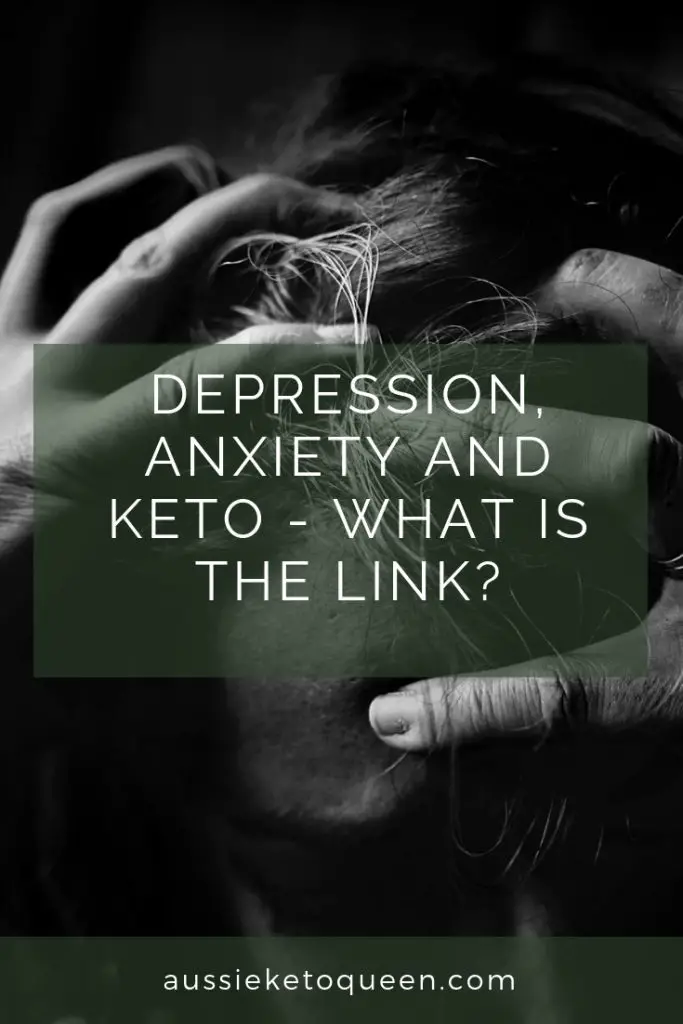
This article is dedicated to those who have supported me through the toughest period in my life and have helped me come out the other side. If you feel alone, you aren’t. As soon as you start talking about how are you feeling, you will realise how many people around you are going through, or have been through, their own version of the same thing. It might be your mother, sister, sister in law, brother in law, colleague, friend or stranger. For me, it was all of them. You aren’t alone.
If this post has caused you any concern at all, please contact the below organisations or reach out to a friend or family member:
Further Reading on the connection between psychiatric disorders, anxiety and keto
- https://www.psychologytoday.com/us/blog/diagnosis-diet/201706/ketogenic-diets-psychiatric-disorders-new-2017-review
- https://www.health.harvard.edu/diseases-and-conditions/the-gut-brain-connection
- https://adaa.org/understanding-anxiety/depression

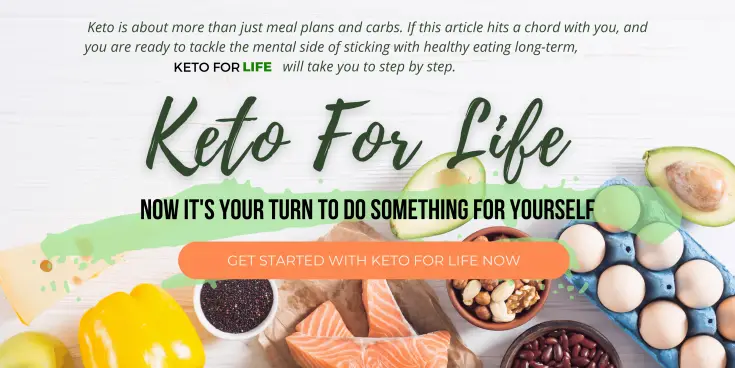

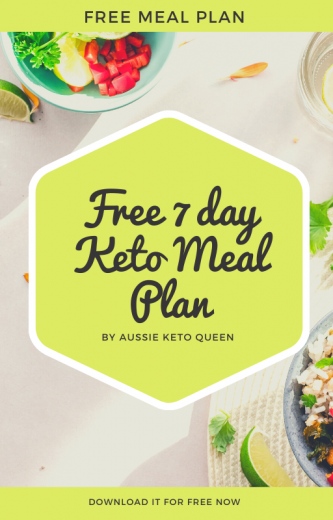
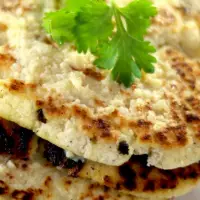


Kat
Tuesday 25th of May 2021
This is so validating to read. Thanks so much for sharing your story with anxiety. So many of us experience it too. I've noticed the connection between keto and anxiety. I quit sugar and started keto in January 2016. I soon noticed that I no longer had that anxiety hovering in my daily life. I also noticed that when I drink wine, especially Moscato (which if I find way too sweet these days) that I would experience anxiety again for a few days afterwards. I've been sharing with my friends the link between anxiety and keto for years, but didn't realise it's the link with gut health that affects our own ecosystem. Thanks heaps for sharing and braving being honest with your audience. I appreciate your honesty and courage to do that.
Rachel
Wednesday 26th of May 2021
Hey Kat, thanks for sharing your experience and kind words. I remember how tough it was to write this post, but I feel like no one was talking about it enough! So many of us are living with anxiety daily, and not connecting what we eat and drink to it. Im glad it has been helpful for you.
Patty
Friday 15th of March 2019
I am so glad to see a post about this. I have been doing keto for almost 2 years. I didn't start doing keto for the reasons most people do. I have bipolar disorder and my interest in it started out of pure desperatation. I started reading on the keto diet and doing a lot of research. When I started keto I was taking a a mood stabilzer and 2 anti-anxiety meds. I worked with my psychiatrist and was able to wean off all my meds over time. But the first improvement I saw was with my anxiety. I stopped needed my anxiety meds. I hope more doctors start being open minded about dietary changes. Thanks for posting about this;.
Melynda
Thursday 17th of November 2022
@Patty, I am curious to know if it is still helping you? I maintained keto for a few years and felt on top of the world. I left it due to some trauma in my life and within 6 months I started having panic attacks. I am on Zoloft which helps but I’d rather go back to keto. I’ve started back here and there but not stuck with it. Have you been able to stay keto? Are you still off the anxiety meds? I hope to get a reply. Thank you!
Rachel
Saturday 16th of March 2019
Thank you for sharing your story Patty, I’m so glad to hear that keto has helped with your anxiety and hope it continues to provide positive things in your life
Maya
Sunday 28th of October 2018
Thank you for this wonderful article. I went on keto for the first time at the beginning of this year mainly to lose weight, and it was amazing for me. I've literally had the year from hell and somewhere along the way, i stopped keto because everything was too much. Reading this has made me realise i need to get back on it, for good, not just to lose weight. my year from hell isnt quite over, but i believe and hope its coming to an end. Perfect time to start the beginning of the rest of my life :)
Rachael
Tuesday 9th of October 2018
Now there’s Food for Thought :) I for one know how miserable I feel after I’ve eaten junk, mentally and physically compared to that of eating well. Already 4 days on keto loving how great I am feeling. Reading stories and reading information like this is motivating and inspiring. Thank you 🙏
Rachel
Wednesday 10th of October 2018
Thanks for your feedback and sharing Rachael, sharing this was pretty tough for me but if it can help even one person, it makes it all worth it 💚
Andrea
Tuesday 9th of October 2018
Thank you so much for willing to be personal and share your experience. I t gives encouragement for a beginning keto person that I am on the right track! Thank you for your website to make the journey easier to navigate xx.
Rachel
Wednesday 10th of October 2018
Thank you Andrea, for taking the time to post a comment. This inspires me to keep going! I wish you well on your keto journey x